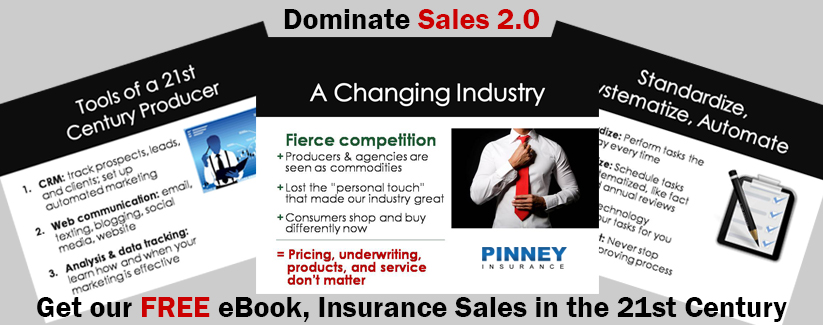You may have seen an article by a Pinney Brokerage Director on LifeHealthPro.com recently. It's called "Genomes, nanobots and wearable tech: What’s next will change insurance forever," and it's been making waves since it was published on December 11. If you haven't read it yet, check it out at this link.
Essentially, our brokerage director breaks down some big changes on the way for the insurance industry, thanks to emerging technology in the medical and wearable technology field. It might surprise you to know that a lot of these futuristic technologies are already here. Take wearable tech, for example. If you have a FitBit, you're using wearable technology. Now imagine what could happen if your health-related data could be uploaded directly to your doctor...or even your insurer! What if insurers could use our daily actions to underwrite our policies? It's a step toward individualized pricing that's already being used by car insurance companies (think Snapshot from Progressive).
New Underwriting Methods
But he went even further than that in his article. What if we take wearable tech one step further towards policy customization...and create underwriting on an individual basis after analyzing a proposed insured's genome? Once again, this is technology we have available to us today. Companies like 23andMe and even Ancestry.com sell genetic testing kits that can provide you with a copy of your fully sequenced genome.
What these companies can't do (yet) is tell you what may be in store for you based on your genome. 23andMe used to provide analysis based on your results, but pending FDA regulation, is no longer able to provide this as part of their service. Still, can you imagine the sea change this would bring to our industry? It would also bring up a fair number of ethical questions we'd need to solve. For example, what happens if a healthy applicant's genome reveals the gene for Parkinson's? Would insurers be allowed to take that into consideration? These are big questions that we'll need some time to answer.
New Risk Management Methods
Even if the criteria for underwriting doesn't change, the way we treat health problems surely will. Consider Google's partnership with Novartis. Together, the two companies have designed special contact lenses that alert the wearer to changing glucose levels - and can send that information to them via phone or tablet. When wearable tech solutions help us monitor our health, we're more likely to take action and keep those conditions under control.
Another Google investment involves nanoparticles - invisible to the human eye and small enough to be injected into the bloodstream. These particles will have the ability to detect abnormalities that indicate cancer or other deadly diseases, hopefully in time to treat them before they take hold. When we look at this development from the underwriting perspective, it's obvious that people are going to be living a lot longer. If, eventually, we can send nanoparticles into the body with treatments, it's possible we could eliminate cancer as a health risk. That gives a big boost to longevity and decreases the underwriting risk in insuring someone with a family history of cancer, for example.
These kinds of technologies seem like something from a science fiction movie, but they're already here with us today. It's only a matter of time until our industry is forced to adapt. So how can we be proactive about that change? It's entirely possible that advanced automation could sharply reduce the need for a life insurance agent. It's up to us to figure out how to provide value to our clients in the coming years.
If they don't need us to help them acquire a policy, what else can we help them do? It's possible our future may lie less in shepherding applications through to carriers and more in a purely advisory capacity. After all, even if a drone can deliver a policy document, it can't tell the client whether term or permanent is a better choice. We need to become more knowledgeable about the questions our clients have, because answering them may be our best bet in an industry on the brink of incredible change.
Read the article here and then join the conversation! What do you think we as agents need to do to adapt to the technological changes coming our way?

